The Gist: Tech is designed to distract you from your priorities.
The first of a two-part review of multiple books, most notably Stand Out of Out Light by James Williams.
Access the second part here: Say No To The Glow.
As you self-quarantine amidst corona, beware the dangers of digital life! For me, there is a particular app that I may very well be addicted to. In those small moments of boredom – in line, in an Uber, wherever – I’m drawn to its delights. It’s practically endless as people from around the world constantly post, with the opportunity to see what’s popular but, even better, searchability for interesting tidbits about things I care about – not to mention the beautiful pictures! I refer, of course, to Wikipedia.
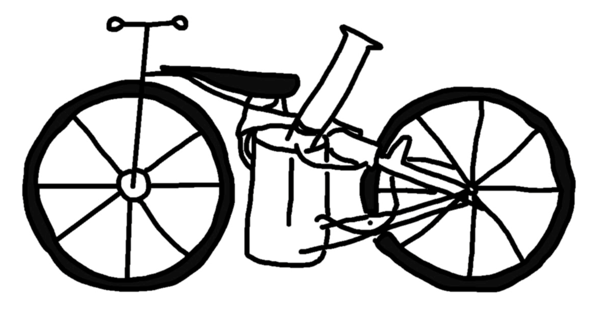
Figure 1. You try to resist reading about inventors killed by their own inventions, sexually active Popes, the Russian attempt to seize Hawaii, forest kindergarten, Spanish participation in the Eastern Front, the Packers sweep, the War of Jenkins’ Ear, execution by elephant, or covert operations by Scientologists against the US government.
I have deleted most everything else endless (to the degree I ever had it) and have tried to ensure that my phone is not my constant companion (to the occasional frustration of some friends, perhaps you, trying to get a hold of me). Instead, I prefer my single purpose Kindle. Lately I’ve been reading warnings encouraging digital restraint, often enough from big tech defectors.
James Williams was a Google advertising strategist who one day looked at his job’s metrics – “Number of Views, Time on Site, Number of Clicks, Total Conversions” – and realized that far too much of his personal life might be boiled down to these “petty and perverse” goals. In his stirring, polemical diagnosis Stand Out of Our Light, he quotes Facebook’s first research scientist: “The best minds of my generation are thinking about how to make people click ads … and it sucks.”
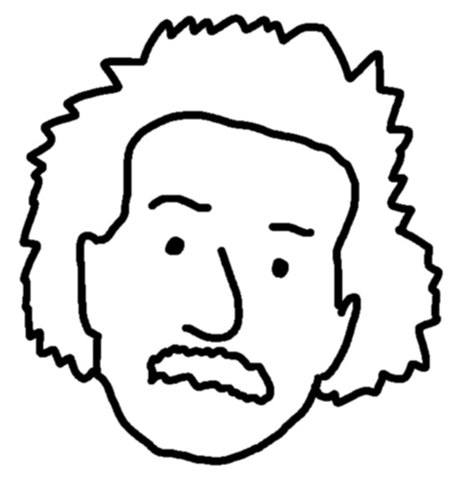
Figure 2. In a near parallel universe, Albert Einstein made billions by demonstrating that energy equals man multiplied by Coca-Cola (or as he preferred: E = mc2)
A book also written by Google defectors but of entirely opposite tone – breezy, cheery, practical – ends up making the same case. In Make Time, Jake Knapp and John Zeratsky insist “willpower alone is not enough to protect your focus. We’re not saying this because we don’t have confidence in you or to justify our own weaknesses. We’re saying this because we know exactly what you’re up against. Remember, we helped build two of the stickiest Infinity Pools out there” – for them, years developing YouTube and Gma
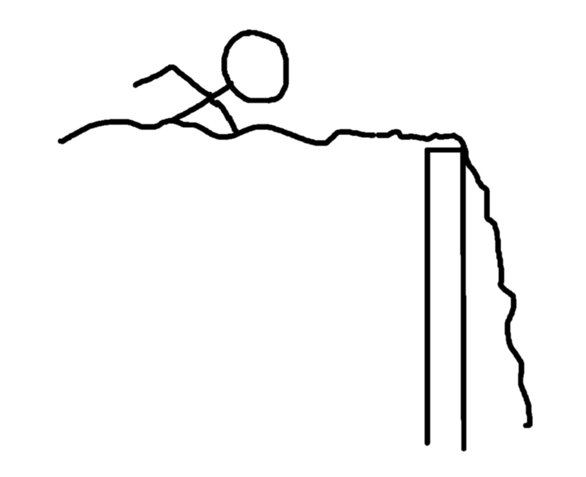
Figure 3. The thing about infinity pools is that you only think they go on forever and then you swim straight into a wall and it hurts.
Yet another Google dissident, Tristan Harris, has not written a book but has argued across media that we are so scared of some sort of robot apocalypse overwhelming human capabilities that we are ignoring the app armageddon already overwhelming human vulnerabilities. He quotes the biologist E.O. Wilson about “the real problem of humanity[:] We have Paleolithic emotions, medieval institutions and godlike technology.” And that was a decade ago, when Facebook had merely a couple hundred million daily users rather than approaching two billion.
Perhaps the best response comes from Andy Crouch, a Christian thinker and entrepreneur who wrote the Tech-Wise Family, a meditation as much on family as tech: “In countless ways our lives are easier than our grandparents’. But in what really matters—for example, wisdom and courage—it seems very hard to argue that our lives are overall better.” Expanding on the point: “Without a doubt, compared to human beings just one century ago, we are more globally connected, better informed about many aspects of the world, in certain respects more productive, and—thanks to GPS and Google Maps—certainly less lost. But are we more patient, kind, forgiving, fearless, committed, creative than they were? And if we are, how much credit should technology receive?”
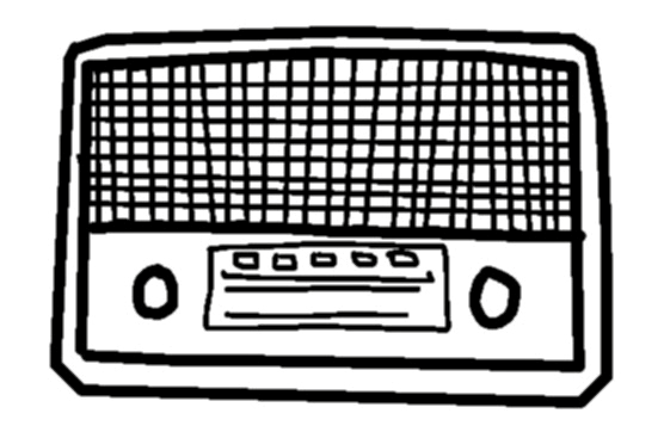
Figure 4. Then again, our grandfathers were addicted to the sweet sweet sounds of radio!
We will discuss potential solutions but let’s first nail down the diagnosis. Along with its wonders, digital technology has brought several interconnected problems. Williams observes that “information abundance produces attention scarcity” and “digital technologies privilege our impulses over our intentions, creating new challenges of self regulation.” And, as Cal Newport has persuasively argued, distractions destroy depth. Unfortunately, our world is full of dizzying distractions – genuinely addictive digital slot machines that can end up replacing real, valuable human interaction with poor quality substitutes, envy, resentment, withdrawal, and generally lesser feelings of self-worth.
Technology, “rather than supporting our intentions, [has] largely sought to grab and keep our attention.” Williams simply asks you to do what he did: compare your big, important goals for how you want to spend your time to the big, profitable goals that your technology has for how you spend your time. Technology’s goals typically include “maximizing the amount of time you spend with their product, keeping you clicking or tapping or scrolling as much as possible, or showing you as many pages or ads as they can.” As Knapp straightforwardly argues: “Tech companies make money when you use their products. They won’t offer you small doses voluntarily; they’ll offer you a fire hose.” The question is: in your ideal world, would you spend more of your finite attention and time with Facebook or your family, with Twitter or books, with Netflix or sleep?
If you prefer family, books, sleep, or any alternative to the digital, you have to recognize that your goals are in tension with some of the richest companies on earth who are spending and facilitating billions of dollars to acquire more and more of your attention. This isn’t merely theoretical: Netflix’ CEO has identified his principal competition not as other forms of entertainment, but sleep. And, to be clear, sleep is losing: “A systematic review and meta-analysis (of 20 studies) showed strong, consistent evidence of an association between bedtime access to or use of devices and reduced sleep quantity and quality, as well as increased daytime sleepiness.”
But digital offerings – that latest season of Narcos or the Crown, those provocative insights from Reddit, those beautiful design ideas from Pinterest – are so attractive and some seem like they can be genuinely helpful. Why can’t we just dip in for a moment to get the best, rather than staying until we are idly scrolling, hours into our use, fatigued rather than renewed? As Williams illustrates, why isn’t most tech more like GPS? We plug in a destination and go there – Waze even purports to save you minutes. Instead, most tech you open up with perhaps a single intention, only to find yourself on a much longer journey, miles and hours away from where you wanted to be.
Nir Eyal tells a revealing story in his book about building successful digital products: ““Are you building a vitamin or painkiller?” is a common, almost clichéd question many investors ask founders eager to cash their first venture capital check. The correct answer, from the perspective of most investors, is the latter: a painkiller.” Furthermore, Eyal notes that “the more effort we put into something, the more likely we are to value it” and rationalize its value “in which we change our attitudes and beliefs to adapt psychologically. Rationalization helps us give reasons for our behaviors, even when those reasons might have been designed by others.” Building on the implication, Newport notes a simple definition: “Addiction is a condition in which a person engages in use of a substance or in a behavior for which the rewarding effects provide a compelling incentive to repeatedly pursue the behavior despite detrimental consequences.” When “fully one-third of Americans say they would rather give up sex than lose their cell phones,” it seems safe to say that lots of us are addicted to our phones. Are you?
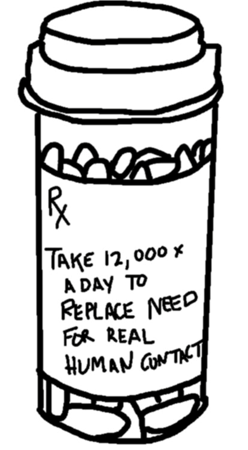
Figure 5. You start on painkillers and end up on heroin. You start on Google Maps and end up on Snapchat. You can stop anytime you want to – but you just need to keep the streak alive!
A common thread in this literature is that these wireless mobile devices (WMDs) and the apps they contain are intentionally designed by the smartest people with the most resources to take advantage of your psychological and cognitive weaknesses. Newport believes that the success of social media is built on two of our brain’s biggest cravings: positive reinforcement and social approval. As Caroline Webb vividly relates, “Whenever our brain’s reward system spots something potentially appealing, it sends us chasing after it like a Labrador retriever after a tennis ball, by releasing neurochemicals (including dopamine and endorphins) that trigger feelings of desire and pleasure in us.” So we’ll gamble with every social media post to see how many likes we can get or we’ll gamble with the reloading of email or a newsfeed to see if anything interesting comes up. The problem is that dopamine is about anticipation, not the reward itself. And endless apps don’t deliver. Perhaps Harris’ most interesting work is reviewing apps based on how a sample of over 200,000 iPhone users feel after they’ve used them. Practically everyone feels good about using MyFitnessPal, Kindle, Spotify. Majorities – sometimes super-majorities – feel worse after using Facebook, Tinder, Candy Crush. Harris notes “In controlled experiments, people who were instructed to use Facebook passively (i.e., scrolling without commenting or posting) for just ten minutes felt 9% worse at the end of the day.”

Figure 6. Thanks to America, now everyone in Iraq can have a WMD!
There are perhaps deeper reasons for this. Newport warns that social media slowly retrains your brain to fill its need for social interaction with low-quality clicks of a like button rather than calling a friend or sitting down to dinner with full attention on your family – the sort of high-quality social interactions that really make you happier (In this respect, social media has already been putting into practice the CDC’s recommendations about social distancing…)
Furthermore, social media detaches you from reality: you see only the curated, very best parts of the lives of your friends (or worse, people you don’t even know), and you succumb to envy of superficial lives that don’t really exist. Meanwhile, you are deeply impacted by the tone of what you consume and social media tends to amplify anger. Williams cites a study that “reduced the number of either positive or negative posts that a sample of around 700,000 Facebook users saw in their News Feed. They found that when users saw fewer negative posts, their own posts had a lower percentage of words that were negative. The same was true for positive posts and positive words.” As Williams darkly puts it, do you really want to be part of a “digital Salem”?
Of course, digital technology can be bad enough if you set aside a specific time for it, but the bigger problem is that it is always around – probably right now in your hands, if not in your pocket. And it doesn’t typically wait for you. The default for your phone is to provide an observable and tactile cacophony as an enticing invitation to check out the latest whatever. And it works: the average person touches his phone 2,617 times per day. For that matter, even the most theoretically productive aspects of digital technology – things like email – if used constantly are a means of being on top of other people’s priorities, not necessarily yours. Over 90% of texts are read within three minutes and replied to within 15. But isn’t a text from a friend a nice little break?
Not if you want to focus and do well whatever you’re doing. Distractions destroy depth. A person takes, on average, 23 minutes to regain their focus after they are distracted. Newport writes about research that shows “when you switch from some Task A to another Task B, your attention doesn’t immediately follow—a residue of your attention remains stuck thinking about the original task. This residue gets especially thick if your work on Task A was unbounded and of low intensity before you switched, but even if you finish Task A before moving on, your attention remains divided for a while.” Williams notes that “researchers at the University of Texas found that the mere presence of one’s smartphone can adversely affect available working memory capacity and functional fluid intelligence.” And he cites a Hewlett-Packard study that found that distractions decreased IQ by double digits – twice the decline of smoking marijuana!

Figure 7. Just say no to the glow and say yes to life.
“Distractibility might be regarded as the mental equivalent of obesity” says Matthew Crawford. Williams suggests that “From this perspective, individual functional distractions can be viewed as akin to individual potato chips.” Betcha can’t eat just one. You compose that tweet, check in on how it’s doing multiple times, spot other things in the newsfeed, etc. etc.
And you’ll notice that none of this gets into the serious questions about your privacy – just the very hard work of fighting your cognitive biases that have been effectively triggered by rich tech companies.
But there’s hope. And I’ll let Andy Crouch set the path for our next email, which will discuss potential solutions:
Technology is in its proper place when it helps us bond with the real people we have been given to love. It’s out of its proper place when we end up bonding with people at a distance, like celebrities, whom we will never meet. Technology is in its proper place when it starts great conversations. It’s out of its proper place when it prevents us from talking with and listening to one another. Technology is in its proper place when it helps us take care of the fragile bodies we inhabit. It’s out of its proper place when it promises to help us escape the limits and vulnerabilities of those bodies altogether. Technology is in its proper place when it helps us acquire skill and mastery of domains that are the glory of human culture (sports, music, the arts, cooking, writing, accounting; the list could go on and on). When we let technology replace the development of skill with passive consumption, something has gone wrong. Technology is in its proper place when it helps us cultivate awe for the created world we are part of and responsible for stewarding… It’s out of its proper place when it keeps us from engaging the wild and wonderful natural world with all our senses. Technology is in its proper place only when we use it with intention and care. If there’s one thing I’ve discovered about technology, it’s that it doesn’t stay in its proper place on its own; much like my children’s toys and stuffed creatures and minor treasures, it finds its way underfoot all over the house and all over our lives. If we aren’t intentional and careful, we’ll end up with a quite extraordinary mess.
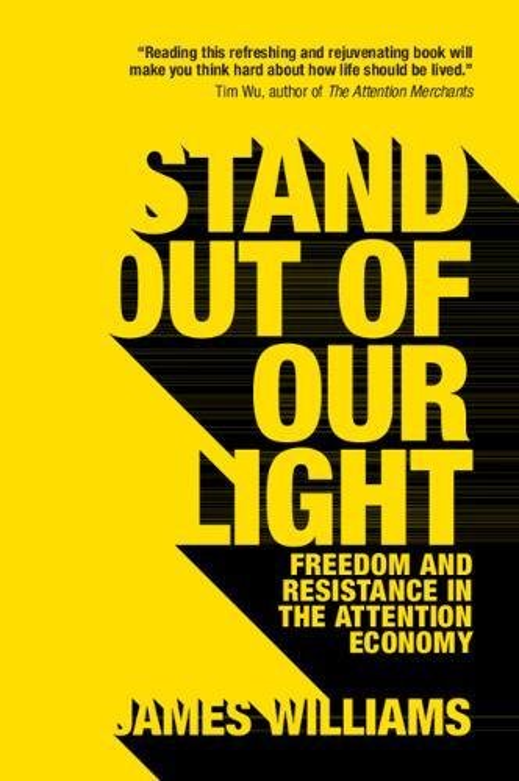
Figure 8. Click here to buy Stand Out of Our Light, 9/10. A stirring polemical diagnosis that is perhaps overwrought (“the liberation of human attention may be the defining moral and political struggle of our time”) but still worthwhile. Notably assigned for all incoming Princeton students to read. One interesting thing not discussed above, but building on the idea that information abundance produces attention scarcity: the Chinese government has begun strategic distraction, where they “drown out the offending information with a torrent of other social media content that directs people’s attention away from the objectionable material. The Harvard researchers who carried out a study analyzing these efforts estimate that the Chinese government creates 448 million posts on social media per year as part of this.” Williams quotes the researcher, “the point isn’t to get people to believe or care about the propaganda; it’s to get them to pay less attention to stories the government wants to suppress.”
Figure 9. Click here to buy Deep Work, 10/10 or Digital Minimalism, 7/10. Deep Work is the better book, but Digital Minimalism is a little more on point. Of all those mentioned, Newport tries to wrestle with both sides of the debate, looking at studies promoted by Facebook that celebrate its use. Like others, he also holds up the Amish as an example that we need to pay more attention to. Though they may not have cars, they’ll have disposable diapers, roller blades, or high-tech farming equipment – “The Amish, it turns out, do something that’s both shockingly radical and simple in our age of impulsive and complicated consumerism: they start with the things they value most, then work backward to ask whether a given new technology performs more harm than good with respect to these values.”

Figure 10. Click here to buy the Tech-Wise Family, 9/10, as much of a meditation on family as tech.

Figure 11. Click here to buy Make Time, 7/10. A breezy, cheery, practical book with some interesting ideas about how to get things done, especially with respect to digital distraction.
Thanks for reading! If you enjoyed this review, please sign up for my email in the box below and forward it to a friend: know anyone who you’d like to spend more time with you than their devices? How about any parents? Or anyone who owns a wireless mobile device?
I read over 100 non-fiction books a year (history, business, self-management) and share a review (and terrible cartoons) every couple weeks with my friends. Really, it’s all about how to be a better American and how America can be better. Look forward to having you on board!



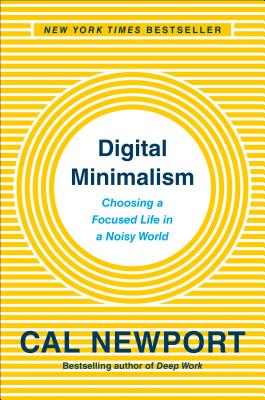
Yeah bookmaking this wasn’t a speculative decision great post! .